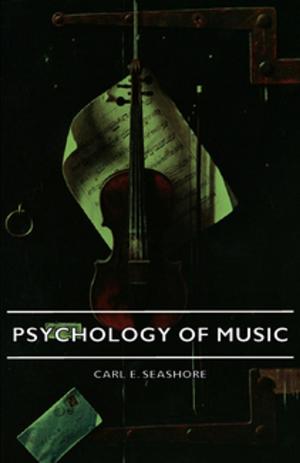| Author: | Benedetto Croce | ISBN: | 9781447494546 |
| Publisher: | Read Books Ltd. | Publication: | October 12, 2011 |
| Imprint: | Bailey Press | Language: | English |
| Author: | Benedetto Croce |
| ISBN: | 9781447494546 |
| Publisher: | Read Books Ltd. |
| Publication: | October 12, 2011 |
| Imprint: | Bailey Press |
| Language: | English |
I have always declined the request to expound my philosophy shortly in a popular way, partly because philosophy, like any other work of man, can only be really understood by those who are of the trade, and partly because this possessive ‘my’ has a bad sound. Any craftsman who takes up the job which a fellow-worker or predecessor has dropped, and carries it on towards perfection does not call it ‘his’ but ‘our’ work. But I have now reached the age when, as Giovanni Prati wrote, there rises in the heart ‘the sadness of the days that are no more.’ It was his fortune to know sadness but not, as we do, to despair in the encircling gloom of slaughter and destruction of all that we held dear or sacred. I have reached the age when a man’s life seems a past that he can survey at a single glance, and when he himself takes his place in ‘history’, or to put it more plainly, he looks at himself as if he were dead. That is why I am now willing to comply briefly, so far as is modest and reasonable, with the request. Consistently with my simile of a craft as always a matter of collaboration, we must get rid of the pretence or illusion that a philosopher’s work or ‘system’ is a self-completed revelation of the so-called ‘mystery of reality’. A definitive pronouncement of total truth would mean the burial of thought and all its doubts, and, with them, of man himself, who would not know what to do with his thought if he did not exercise it in order to live a human life. Man thinks and will always think and always doubt, though he could not think if he did not already live in the truth, in the light of God. In his continual progress man stumbles from time to time upon obstacles which have a certain common nature; he meets with clouds and darkness and perplexity which he must clear away if he is to advance in thought and in its corresponding action. A man is a philosopher in the strict or eminent sense if he removes one more of these stumbling-blocks, great or small, if he dispels one of these clouds, or lightens one darkness, so that by the result of his work the activities of civilisation and morality, slowly perhaps but certainly, enjoy increase.
I have always declined the request to expound my philosophy shortly in a popular way, partly because philosophy, like any other work of man, can only be really understood by those who are of the trade, and partly because this possessive ‘my’ has a bad sound. Any craftsman who takes up the job which a fellow-worker or predecessor has dropped, and carries it on towards perfection does not call it ‘his’ but ‘our’ work. But I have now reached the age when, as Giovanni Prati wrote, there rises in the heart ‘the sadness of the days that are no more.’ It was his fortune to know sadness but not, as we do, to despair in the encircling gloom of slaughter and destruction of all that we held dear or sacred. I have reached the age when a man’s life seems a past that he can survey at a single glance, and when he himself takes his place in ‘history’, or to put it more plainly, he looks at himself as if he were dead. That is why I am now willing to comply briefly, so far as is modest and reasonable, with the request. Consistently with my simile of a craft as always a matter of collaboration, we must get rid of the pretence or illusion that a philosopher’s work or ‘system’ is a self-completed revelation of the so-called ‘mystery of reality’. A definitive pronouncement of total truth would mean the burial of thought and all its doubts, and, with them, of man himself, who would not know what to do with his thought if he did not exercise it in order to live a human life. Man thinks and will always think and always doubt, though he could not think if he did not already live in the truth, in the light of God. In his continual progress man stumbles from time to time upon obstacles which have a certain common nature; he meets with clouds and darkness and perplexity which he must clear away if he is to advance in thought and in its corresponding action. A man is a philosopher in the strict or eminent sense if he removes one more of these stumbling-blocks, great or small, if he dispels one of these clouds, or lightens one darkness, so that by the result of his work the activities of civilisation and morality, slowly perhaps but certainly, enjoy increase.















